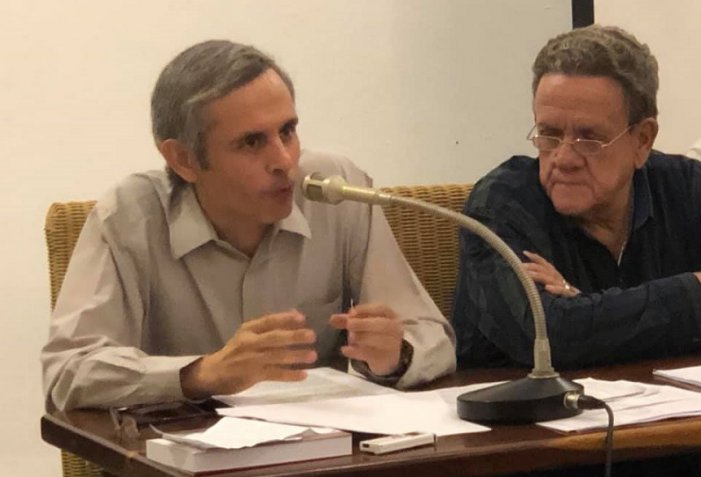 Gabriel García Higueras: “What matters is Trotsky’s work being known in Cuba”
Gabriel García Higueras: “What matters is Trotsky’s work being known in Cuba”
In Havana, we interviewed Gabriel García Higueras, Peruvian researcher specializing in Trotsky’s work.
By La Izquierda Diario México
Tuesday May 14, 2019
Translated and edited by Walter Lippmann for CubaNews

García Higueras is also a university professor, author of Trotsky en el espejo de la historia (Essays), published in Mexico by Editorial Fontamara, and of Historia y perestroika. La revisión de la historia soviética en tiempos de Gorbachov (1987-1991). He is also the author of the Guide to the Museo Casa León Trotsky.
Daily Left (LID): How do you evaluate this event?
Gabriel García Higueras: This is an event of great academic and political importance. It is transcendental that an encounter of this nature has taken place in Cuba. As I said this afternoon, at the beginning of my presentation, since 1990 there has not been an international congress on Trotsky that brings together such a number of presentations and speakers from so many countries. Frank García’s call and organization have been magnificent, as well as the reception he has found in the public. The fact that it takes place in Cuba is unprecedented and will mark a milestone in the research on Trotsky that will be carried out in this country. It should also be noted that the conference is taking place despite not having sufficient organizational support. This is very meritorious and evidences the dedication and commitment of those who have made it a reality.
LID: What is the importance of this taking place in Cuba?
Gabriel García Higueras: Without a doubt, it is very important that this event has been allowed in Cuba, which also reveals a greater political openness to address issues that were previously censored. As is well known, for a long time Trotsky was a taboo figure on the island, since the revolutionary government of Cuba, by aligning itself with the bloc of communist countries, adopted the Stalinist version of his role in the Russian Revolution. Precisely, Leonardo Padura writes about this distorted vision in one of the texts that make up his recent book Agua por todas partes (Tusquets, 2019). So this event is a vindication of one of the essential figures of socialist thought in the twentieth century.
On the other hand, I think it is important that Trotsky’s work be made known to new generations of Cubans. In that sense, the presentation of two of his fundamental books: The Revolution Betrayed and Latin American Writings, will be of enormous importance in this event.
In addition, tomorrow we will have the scoop of world premiere of the documentary on the life of Trotsky in the process of editing, The Most Dangerous Man in the World, by filmmaker Lindy Laub, who has had the historical advice of Suzi Weissman. It is the most complete and best-documented film ever made about Trotsky. And I say this because I saw the trailer at the Leon Trotsky Museum in Mexico nine years ago.
LID: Why don’t you tell us what your participation consisted of?
Gabriel García Higueras: Well, I dealt with Trotsky’s historiographic representation in the Soviet Union during the perestroika. That subject is important because, at that time, a revision of the official history was initiated and, therefore, his figure as the protagonist of the Russian Revolution was recovered. Moreover, this revision allowed the appearance of new historical narratives about Trotsky, some of which are still circulating in Russia.
Due to the fifteen minutes I had for my presentation, I limited myself to presenting the main lines of the subject. I would also have liked to talk about the historical vision of Trotsky in Russia today.
LID: You also presented a book…
Gabriel García Higueras: Yes, this is Trotsky’s second edition in the mirror of history, published in Mexico two years ago. Although I couldn’t bring many copies from Lima, I’m excited that my book will be consulted in libraries by avid Cuban readers.
LID: What about Trotsky today?
Gabriel García Higueras: He is a thinker whose ideas are unavoidable to understand the main processes of the contemporary world. Trotsky reflected and wrote about such a diversity of problems that his ideas always illuminate our vision of reality. Just to cite one example, his theory is key to understanding the Russian Revolution and the historical process that began in 1917. In that perspective, his writings provide us with solid arguments to understand the degeneration of the first workers’ state and the causes for its disappearance.
Interviewed: Pablo Oprinari
You can also read: Trotsky revisited in Havana, Cuba

You must be logged in to post a comment.